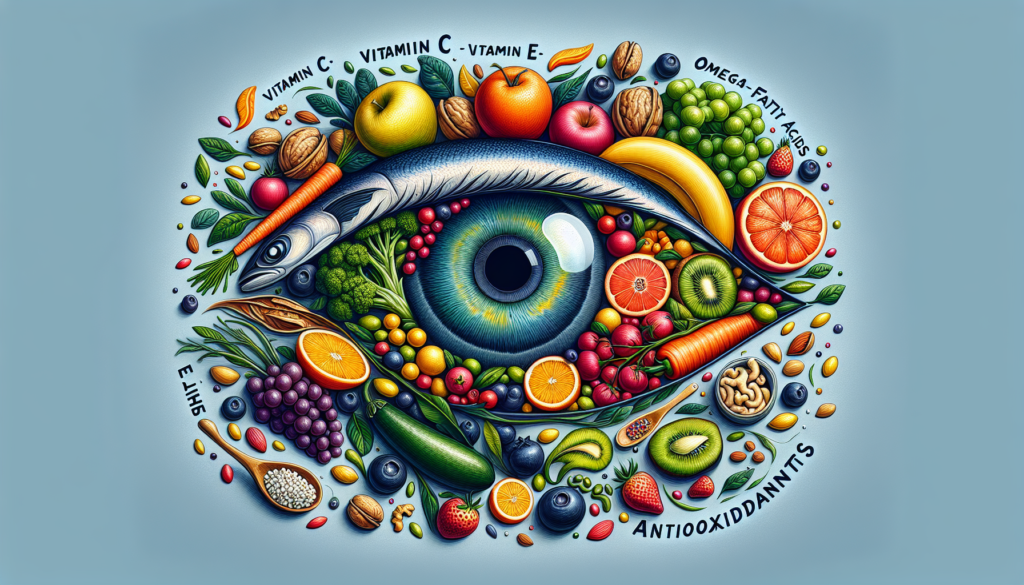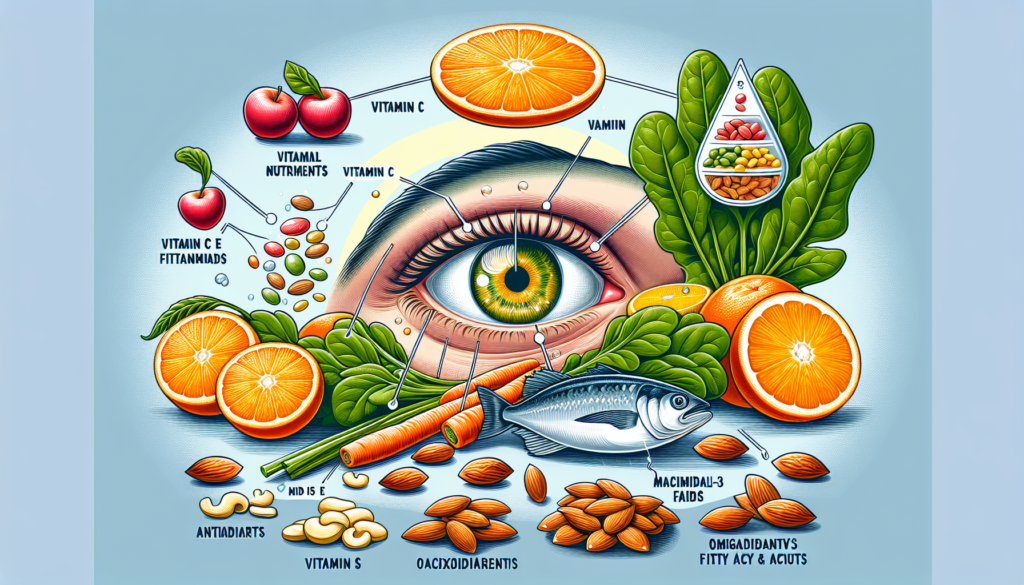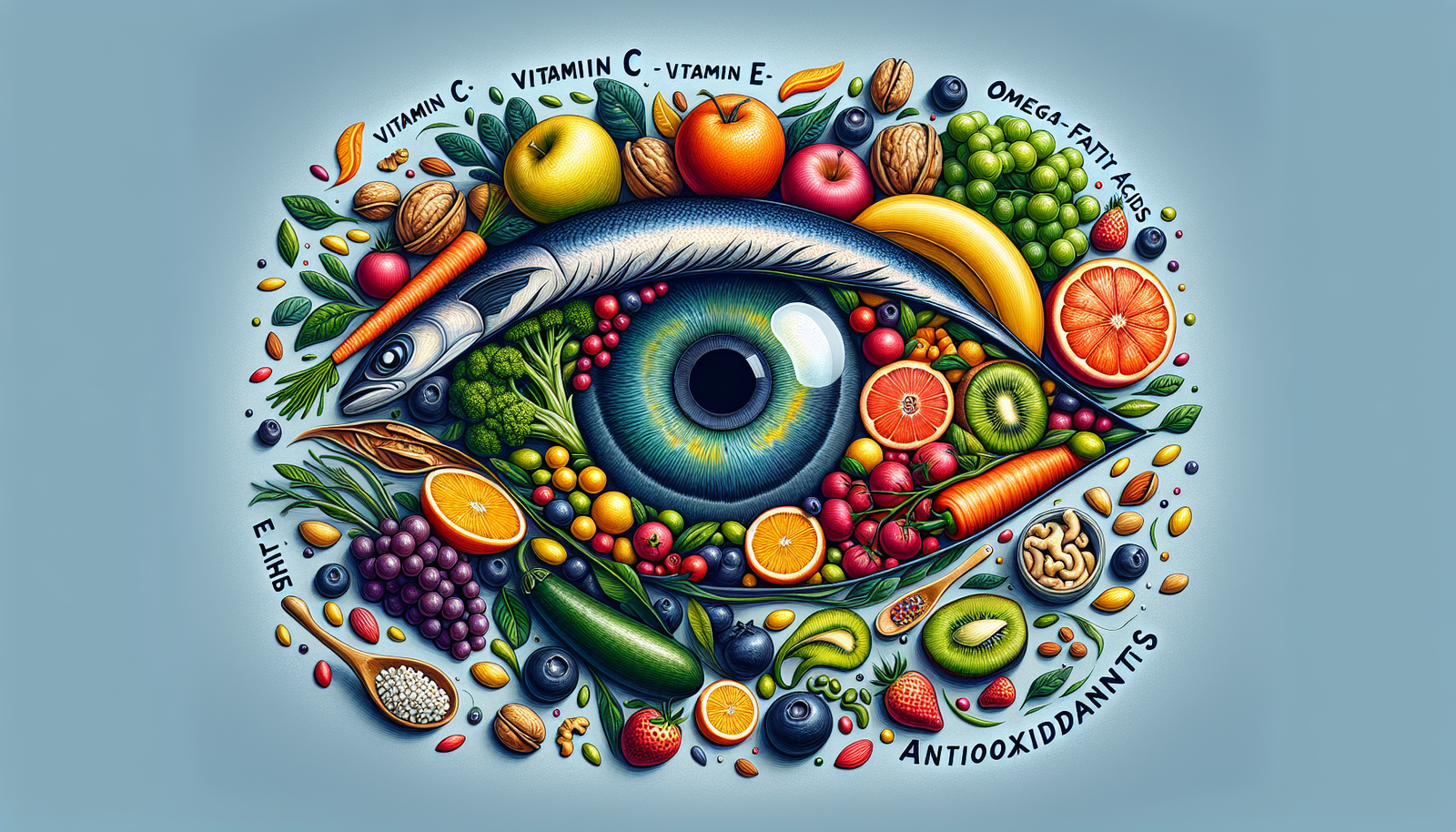Take a moment to consider the remarkable gift of sight that allows you to witness the beauty and wonder of the world around you. Your eyes are precious, and it’s crucial to take care of them. In this article, we will explore the importance of vital nutrients for maintaining optimal eye health. From antioxidants to omega-3 fatty acids, we will uncover the secrets to keeping your eyes strong and vibrant. So, sit back, relax, and let’s discover the essential nutrients your eyes need to thrive.
Vital Nutrients for Eye Health
Having good vision is essential to your overall well-being. Your eyes work tirelessly every day, allowing you to navigate the world and enjoy the beauty that surrounds you. To maintain optimal eye health, it’s crucial to ensure that you’re providing your eyes with the necessary nutrients they need. Let’s explore some vital nutrients that play a significant role in promoting healthy eyes.
Vitamin A
One of the most crucial nutrients for maintaining healthy eyes is Vitamin A. This vitamin is essential for good vision as it helps your eyes convert light into electrical signals that are sent to your brain. It also promotes the production of a pigment called rhodopsin, which aids in low-light vision. Foods rich in Vitamin A include carrots, sweet potatoes, spinach, and broccoli. Ensuring that you have an adequate intake of Vitamin A in your diet can help protect your eyes from diseases such as night blindness and dry eyes.
Omega-3 Fatty Acids
Omega-3 fatty acids are not only beneficial for your heart and brain health but also play a vital role in maintaining good eye health. These fatty acids are essential for the proper functioning of the retina, the part of the eye that detects light and sends visual signals to your brain. Incorporating foods like fatty fish (such as salmon and sardines), flaxseeds, and chia seeds into your diet can provide you with an excellent source of omega-3 fatty acids. These nutrients may help prevent age-related macular degeneration, one of the leading causes of vision loss in older adults.

Vitamin C
Vitamin C, well-known for its immune-boosting properties, also plays a significant role in maintaining healthy eyes. This powerful antioxidant helps combat the damaging effects of free radicals on your eyes. It may also lower the risk of developing cataracts and slow the progression of age-related macular degeneration. Citrus fruits like oranges, grapefruits, and lemons are excellent sources of Vitamin C, along with strawberries, bell peppers, and spinach.
Vitamin E
Another vital nutrient for eye health is Vitamin E. It works alongside Vitamin C to protect your eyes from oxidative stress caused by harmful free radicals. Vitamin E may help reduce the risk of cataracts and age-related macular degeneration. Foods rich in Vitamin E include nuts, seeds, vegetable oils, and leafy green vegetables like spinach and broccoli.

Zinc
Zinc is an essential mineral that is found in high concentrations in your eyes. It plays a critical role in transporting Vitamin A from the liver to the retina to produce melanin, a protective pigment in the eyes. Adequate levels of zinc may help reduce the risk of macular degeneration and night blindness. Foods such as oysters, beef, poultry, and pumpkin seeds are excellent sources of zinc.
Lutein and Zeaxanthin
Lutein and zeaxanthin are two powerful antioxidants that are found in high concentrations in the macula of the eye. They help filter out harmful blue light and protect the eyes from oxidative damage caused by exposure to sunlight. Including foods like leafy green vegetables (such as kale, spinach, and collard greens), eggs, and corn in your diet can boost your intake of lutein and zeaxanthin. These nutrients have been shown to reduce the risk of age-related macular degeneration and cataracts.
Beta-carotene
Beta-carotene is a type of carotenoid that your body converts into Vitamin A. Like Vitamin A, beta-carotene is crucial for good vision. Foods rich in beta-carotene include carrots, sweet potatoes, apricots, and red bell peppers. Consuming these foods can help promote healthy eyes and reduce the risk of eye diseases.
Vitamin B Complex
The B-complex vitamins, including B1, B2, B3, B5, B6, B9, and B12, play a vital role in maintaining healthy eyes. These vitamins help support the optic nerve, which transmits visual information from the eyes to the brain. They also aid in reducing the risk of cataracts and age-related macular degeneration. Foods such as whole grains, legumes, eggs, dairy products, and lean meats are excellent sources of the B-complex vitamins.
Vitamin D
Vitamin D is commonly known for its role in bone health, but did you know it also plays a part in maintaining healthy eyes? Research suggests that a deficiency in Vitamin D may increase the risk of developing macular degeneration and dry eye syndrome. While sunlight is the best source of Vitamin D, incorporating foods such as fatty fish, fortified dairy products, and eggs into your diet can help ensure you’re getting enough of this essential nutrient.
Magnesium
Magnesium is a mineral that is involved in more than 300 biochemical reactions in your body, including those responsible for maintaining eye health. It helps support a healthy blood flow to the eyes and protect the blood vessels in the retina. Good food sources of magnesium include dark chocolate, nuts, seeds, legumes, and green leafy vegetables.
By incorporating these vital nutrients into your diet, you can support the health and well-being of your eyes. Remember to consult with your healthcare provider or an eye specialist to determine the appropriate dosage of any supplements and to ensure that you’re getting a well-balanced diet that meets your individual needs. Taking care of your eyes today will allow you to enjoy clear vision and vibrant colors for years to come.

